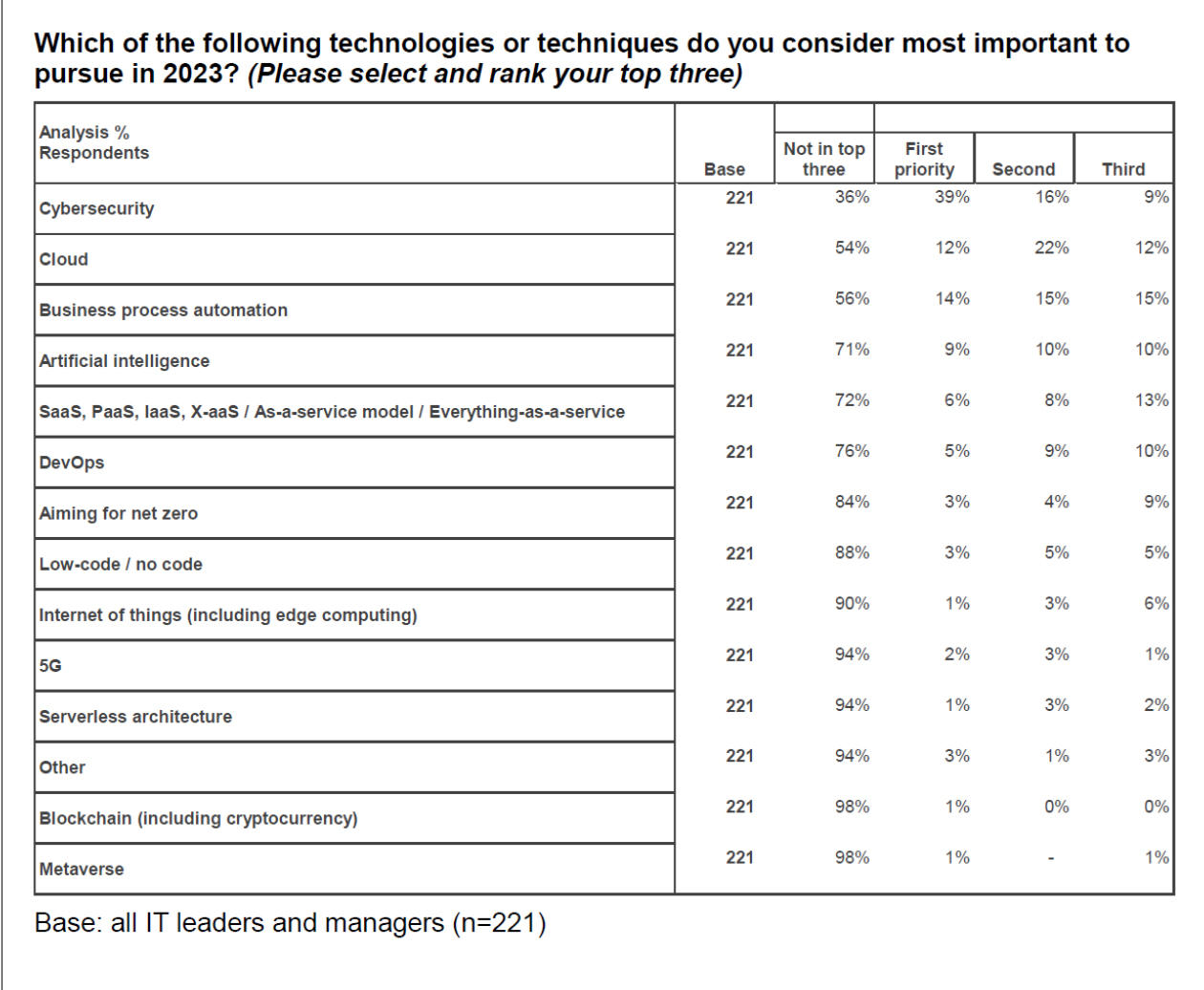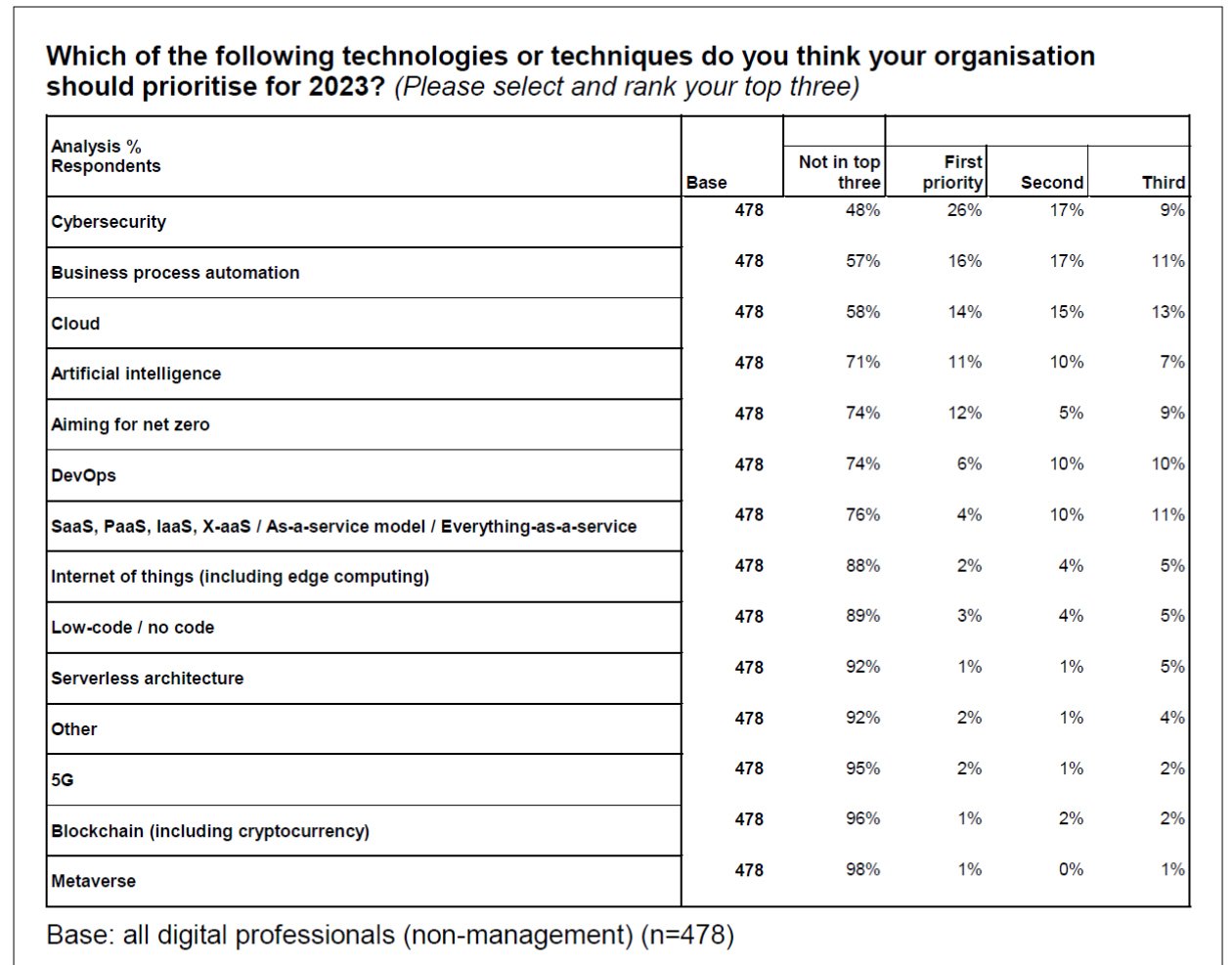Priorities
For IT leaders, in previous years, cloud and cybersecurity have consistently featured in the top two technology priorities, with an occasional swapping of order. In 2022 cloud was a top priority for 27% (58% featured it in their top three) and cybersecurity for 24% (57% in top three). In 2023 this has changed markedly. Cloud is the top priority for 12% (46% featured in top three) but security for 39% (64% featured in the top three).
Also in 2023, business process automation has replaced cloud as the second top priority – the first time cloud has dropped out of the top two since 2013. In 2022 business process automation was selected by 19% (44% put this in the top three), whilst in 2023 14% placed this at top priority, with 44% placing it in the top three.
For digital professionals the order is the same: cybersecurity, business process automation and then cloud. These were rated number one priority by 26%, 16% and 14% respectively. This means the general priorities are in line between leaders and digital professionals, but clearly the security aspect has caused increased anxiety for leaders of late.
Amongst IT leaders in 2023 AI was top priority for only 9% (10% in 2022), but its increasing profile was reflected in a top three placing by 29%, compared to 2022’s 27%. The ‘as-a-service’ model was selected by 28% as a top three priority, down from last year’s 33%.
After these headlines, priorities diverge a little for digital professionals. The ‘as-a-service’ model featured lower down. Higher up the digital professionals’ list was aiming for net zero, with 12% considering this the number one priority (against 3% amongst leaders) and 26% putting this in the top three (as against 16% amongst leaders). This perhaps bodes better for grassroot action, but also shows the need for increased leadership on the issue.
IT leaders’ view of technology priorities:
Click to view larger image
Digital professionals’ view of technology priorities:
Click to view larger image
For leaders, some of the additional technologies listed in the verbatims included healthcare informatics (reflecting the broadness of the BCS church); AI-assisted content creation (ChatGPT is clearly on people’s minds); quantum key distribution; and general comments on infrastructure.
Digital professionals covered some of the same ground – quantum computing was mentioned several times, but so were the staples of digital transformation, project management, agile, digital forensics, automation and data maturity. A good general comment: ‘Just building good systems, avoiding overblown fashionable approaches.’















